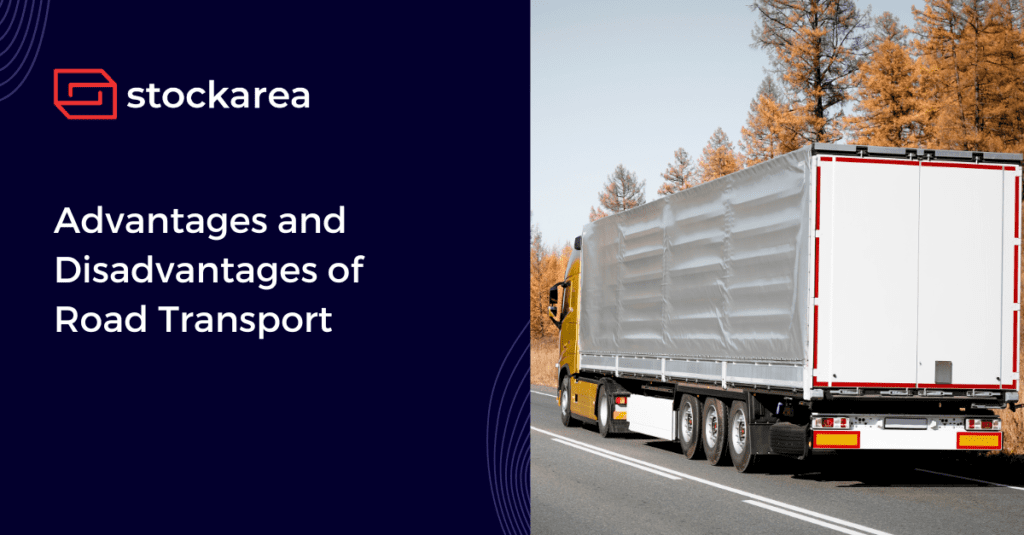Road transport is the most widely used form of transport in the supply chain preferred by businesses. Transport providers offer planned delivery days and next-day delivery services depending on the demand. All types of cargo, including commodities packed or bundled in containers and even those destined for sea or air transit, are transported via road. Further ahead, let us look at the pros and cons of road transportation.
Advantages Of Road Transport
1. More Economical
One of the most significant advantages of road transport is that it requires far less capital investment as compared to other modes of transportation such as railways and air travel. It is widely preferred as the cost of road construction, operation, and maintenance is far less than that of rail or air travel, and the travellers have to pay a nominal charge to use the roads.
2. Personalised Services
Road transport entails the primary feature of personalised service, which includes the capacity to deliver door-to-door for the end customers. This is considered one of the greatest assets of road transport and makes it the lifeblood of the transportation sector, as this facility cannot be provided by any other mode of transportation.
3. Greater accessibility
Road transport is the most versatile and adaptive mode of transportation, reaching the most inaccessible regions. Therefore, road travel is optimal for transporting goods and people to and from rural regions not served by rail, water, or air transport. Transporting merchandise between large cities and small villages is therefore only practicable via road transportation.
4. Advantageous for short distances
Transportation of products and people over short distances by road is significantly less costly and faster. In this mode of transport, the cost associated with intermediate handling and feeder connectivity can be eliminated as goods can be loaded directly onto a road vehicle and carried directly to their destination. Therefore, only road transportation is economically and logistically practical for a short distance.
5. High scope of Flexibility
Road transport is the most flexible mode of transportation, as the routes, timings, and schedules can be easily modified to accommodate specific needs. This gives road transport a significant advantage over all other means of transportation that adhere to strict and inflexible time and route schedules. It also has the scope to make alterations to accommodate individual needs specific to availability and convenience.
Disadvantages Of Road Transport
1. Susceptible to weather changes
The structure and travel through road transportation are susceptible to weather and seasonal fluctuations, making it unusable and unsafe. Heavy rain, fog, and other weather extremes can significantly impact roadway travel and therefore, it is imperative to check the weather before heading out on the road.
2. Greater vulnerability to accidents
The danger of accidents and breakdowns is unquestionably higher for road transport. This makes road transportation less predictable and secure than other modes of transportation, which have relatively fewer chances of breakdowns and mishaps.
3. Unsuitable for heavy freight
As heavy cargo is difficult to transport and involves high loading-unloading charges, road transportation for heavy cargo seems unsuitable, especially for long distances. There is always the possibility of overloading or wreckage of heavy freight during transportation by road, considering its unpredictable nature compared to other modes of transportation. Such events can be costly and therefore prove to be a liability rather than an asset.
4. Slower mode of transport
Road transportation is widely known to be slower compared to air and rail transport. Therefore, the slow speed of road transit is an impediment and a disadvantage. Delays such as traffic, poor roads, and required driver breaks can add up to additional hours of delay. Delays can also prove to be expensive, and the overall cost of road freight can be higher than alternatives, depending on distance, goods being transported, and scheduling, among other factors.
5. Absence of organizational and structural balance
The road transport industry is notably less organised and structured than air, rail, and water transport. Vulnerability to weather and infrastructural conditions makes road transit unpredictable and unreliable. The transportation rates are also arbitrary and dependent on the subjective outlay of terrain and other factors. This disorganisation and irregularity is a result of the numerous participants and possibilities that exist in the road transport industry, the majority of which cannot be predicted beforehand.
Related posts
- 7 Latest Technologies Changing The Trucking Industry
- 7 Major Challenges Of The Trucking Industry
- What Is Transportation Management System?
- 15 Best Courier Services Companies In India
- 10 Key Benefits Of Transportation Management System (TMS)
- 7 Steps To Choosing The Right Courier Partner
- 6 Steps To Start A Successful Trucking Business
- 5 Key Benefits Of Hiring Trucking Company For Logistics
- Top 11 Trucking Industry Trends In 2024
- 10 Must-Have Transport Management System Features
- 7 Proven Methods To Improve Transport Efficiency
- 6 Challenges Faced By Transportation Companies In India
- 10 Best Cost Reduction Strategies In Logistics Procurement
